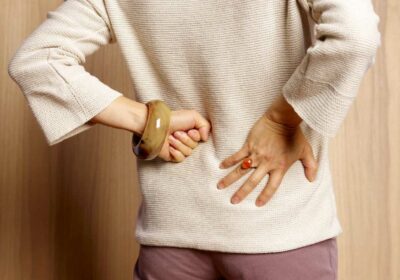I’m a doctor and these are 3 ways to prevent agonising kidney condition

URINATING is natural, but if you've had a particularly painful pee then you could have kidney stones.
It's most common in people aged 30 to 60 and a doctor has now revealed the best ways to prevent the agonising condition.
Posting to TikTok, Dr Karan Rajan said that around ten per cent of people will get kidney stones during their lifetime.
He explained that some of his patients had previously described the condition as 'having your insides tickled with shards of glass'.
Kidney stones are common and if you've got small ones it likely that you will pee them out without any discomfort.
Dr Rajan said there are three changes you can make to your diet so you aren't in the ten per cent of people than will suffer from the condition.
He explained: "Strangely enough, low calcium can actually cause kidney stones.
"You need to get enough calcium in your diet so it can bind to oxalate in the stomach and intestines before if moves to the kidneys."
Oxalate is found in some foods and is also produced as a waste product in the body.
It comes out through your pee and too much of it can cause kidney stones in some people.
"Eating foods with calcium is a good way for oxalates to leave the body and not form stones", Dr Rajan added.
The foods with the most calcium are dairy products such as cheese and milk.
If you don't drink milk though you can still get calcium from other sources such assoya drinks with added calcium and green leafy vegetables – such as curly kale and okra.
Dr Rajan also said that you should try and 'not go overboard' with salt when it comes to your diet.
He explained: "Excessive salt in the diet can keep calcium from being absorbed – leading to kidney stones."
Cutting down on the amount of salt you consume is also beneficial to your health as it can increase your blood pressure, which in turn increases your risk of heart attacks or strokes.
Dr Rajan added that you should also stay away from animal proteins.
"Animal proteins contain purines and eating too much can cause acid to build up in your urine, increasing the risk of stones."
What are kidney stones and what symptoms should I look for?
Kidney stones are masses made of salt and minerals, and can be anywhere between a grain of salt and a golf ball in size.
There are several different types, calcium stones, struvite stones, uric acid stones and cystine stones.
What are the symptoms?
- Severe pain in the side and back, below the ribs
- Pain that radiates to the lower abdomen and groin
- Pain that comes in waves and fluctuates in intensity
- Pain on urination
- Pink, red or brown urine
- Cloudy or foul-smelling urine
- Nausea and vomiting
- Persistent need to urinate
- Urinating more often than usual
- Fever and chills if an infection is present
- Urinating small amounts
While meat is a good source of protein there are other ways you can get the right amount.
Foods such as eggs and dairy products are also great sources of protein.
If you follow a vegan diet then foods such as seitan, tofu, tempeh, and edamame are all also great sources of protein.
There are some vitamins though, that if you over consume them, can cause kidney stones.
Dietician Sophie Medlin, Founder of City Dieticians said: "Vitamin D increases calcium uptake in the gut which can lead to hypercalcaemia (too much calcium).
"Hypercalcemia, in turn, can lead to nausea, vomiting, muscle weakness, mental and neurological disturbances, pain, loss of appetite, dehydration, excess urination, excessive thirst, and kidney stones.
"In extreme cases, vitamin D toxicity causes kidney failure."
Dr Rajan added that while diet is one of the biggest risk factors, there are also other things that cause kidney stones such as family history and genetics.
We pay for your stories!
Do you have a story for The Sun news desk?
Email us at [email protected] or call 0207 782 4104. You can WhatsApp us on 07423 720 250. We pay for videos too.
Click here to upload yours.
Click here to get The Sun newspaper delivered for FREE for the next six weeks.
Source: Read Full Article


